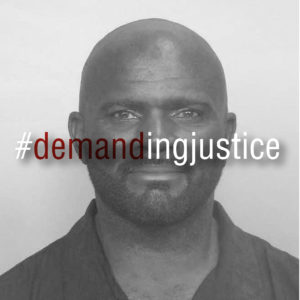On August 25, Shared Hope International is releasing the Demanding Justice Project Report and an interactive website featuring our research on demand. The Demanding Justice Project is a research and advocacy initiative designed to promote deterrence of demand for commercial sex with children through increased attention and advocacy on demand enforcement. The research report documents the outcomes of federal and state arrests, charges and prosecutions of buyers of sex acts with children.
The findings of this research will inform advocacy efforts to strengthen anti-demand legislation and enforcement and will be featured on our new website at www.demandingjustice.org. The Demanding Justice Project website will allow you to read this groundbreaking research, see who is buying sex with children in your state, and exposes high profile buyers who are celebrities, athletes, and politicians, among others. This is where you come in. Please consider announcing the release of www.demandingjustice.org with us. This page contains a press kit and social media badges so you can join us in a show of overwhelming solidarity against demand for commercial sex with youth in the United States. Please join us to Demand Justice! Here’s what you can do:
- Display a #DemandingJustice badge on your Facebook/Twitter/Instagram profiles for a day on August 25.
- Use your social media to announce the Demanding Justice Project and join hundreds of other voices across the anti-trafficking movement by supporting our Thunderclap, a social media crowd-speaking platform that helps us proclaim in a unified voice that demand must be stopped.
- Forward our press release to your news contacts.
- Share www.demandingjustice.org when we go live on August 25th!
Thank you for being an ally in the effort to eradicate the market force that fuels sex trafficking and victimizes the vulnerable. Together we can defeat demand. We are #DemandingJustice. Are you?
[clear-line]
Display #demandingjustice badges & suggested text for social media on August 25[clear-line]
Download All Images [clear-line]
[one-third-first] [/one-third-first][one-third]
[/one-third-first][one-third] [/one-third][one-third]
[/one-third][one-third] [/one-third]
[/one-third]
[clear-line][one-third-first]Who is buying sex with children in your state? Are we doing enough to stop them? Are we #DemandingJustice?[/one-third-first][one-third]Make the buyers known! They can no longer remain anonymous. Bring their crimes into the light and end sex trafficking. #DemandingJustice[/one-third][one-third]Should someone who paid for sex with a trafficked child be in the NFL Hall of Fame? Isn’t @LT_56 a criminal? #DemandingJustice[/one-third][clear-line]






